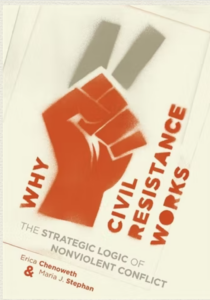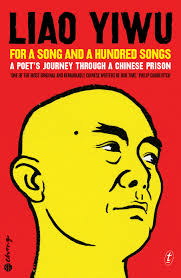Protests against Covid lockdowns have rippled across China, among the most widespread there in decades. Some Chinese people, many of them young, are fed up with the government’s lockdowns, mandatory quarantines and mass testing, all part of the zero-Covid strategy intended to limit transmission of the virus. But few demonstrators shouted their frustration — they held up white pieces of paper instead, The Times reports:
These blank sheets illuminate the limits of criticism in China. In democracies, booming crowds and brazen signs are hallmarks of protest. But Chinese citizens risk being prosecuted for criticizing the government. The Communist Party under Xi Jinping, China’s leader, has cracked down on dissent, making even subtle acts of opposition perilous.
“These protests are absolutely extraordinary, especially in the era of Xi Jinping, who has really tightened controls on speech,” said Vivian Wang, a Times correspondent in Beijing who is covering the demonstrations there. “The white paper is an implicit criticism of that censorship.”
成都人民走上街头,要自由,不要和核酸 pic.twitter.com/6XHVcw3nUd
— 王局志安 (@wangzhian8848) November 28, 2022
On Wednesday, new videos emerged of clashes the night before in the southern city of Guangzhou in which residents toppled barricades and threw bottles at officers, notes analyst Max Fisher. But if protesters in China hope to bring sweeping political change, they may find that they face hurdles beyond even their government’s fearsome reputation for quashing dissent — and still tougher odds than might be apparent on the surface.
Three major forces, two of them global in nature and one particular to China, stand in their way, he writes for The New York Times:
- For one, protests aimed at ousting a leader or government have seen their odds of success plummet in recent years, with the overwhelming majority now failing amid changes in the nature of communication, organizing and repression — a trend that China seems to fit.
- For another, China’s government embodies a type of authoritarianism, known as a revolutionary government, that new scholarship has found to be exceedingly durable against even explosive unrest.
- Lastly, China’s ruling Communist Party has repeatedly proven its exceptional skill at managing eruptions of popular anger, which are more common there, albeit on a smaller scale, than outside observers might assume.
 Throughout most of the 20th century, mass protests seeking a change in government grew steadily more common and more likely to succeed worldwide, felling many a dictator, The NYT’s Fisher adds. By the early 2000s, two in three such movements ultimately succeeded, according to research led by Harvard University’s Erica Chenoweth.
Throughout most of the 20th century, mass protests seeking a change in government grew steadily more common and more likely to succeed worldwide, felling many a dictator, The NYT’s Fisher adds. By the early 2000s, two in three such movements ultimately succeeded, according to research led by Harvard University’s Erica Chenoweth.
“Nonviolent campaigns are seeing their lowest success rates in more than a century,” Dr. Chenoweth wrote in a recent paper, with respect to movements seeking a leader’s removal or territorial independence.
Yet without some of China’s elite breaking with Mr. Xi, Cambridge University scholar William Hurst wrote on Twitter, “the most likely scenario I can see is that the protests fizzle out (as most such movements do in most countries).”
“Having erupted spontaneously in a short period, they will fade away without reaching any climax or denouement,” he predicted.
Prospects for elite fracture appear slim, recent research suggests. Only 40 per cent of major elite divisions from the ruling party force leaders to introduce democratic reforms, according to a comparative study of elite defections in autocracies by Dr. Adrián del Río, a Humboldt Postdoctoral Fellow at the Berlin-based Centre for East European and International Studies (ZOiS).
 The protests confirm the emergence of “COVID-1984 – a kind of high tech dictatorship never before seen, the monstrous spawn of the Wuhan virus and Internet technologies,” says the celebrated Chinese writer Liao Yiwu. The Xi Jinping empire has finally achieved a “Communist health code system” within the Great Red Firewall – a system of universal surveillance formed ostensibly for epidemic control.
The protests confirm the emergence of “COVID-1984 – a kind of high tech dictatorship never before seen, the monstrous spawn of the Wuhan virus and Internet technologies,” says the celebrated Chinese writer Liao Yiwu. The Xi Jinping empire has finally achieved a “Communist health code system” within the Great Red Firewall – a system of universal surveillance formed ostensibly for epidemic control.
Chinese protestors have had an “underlying realisation” they are living under one of the most “authoritarian regimes” in the world, says The Australian’s Foreign Editor Greg Sheridan (below).
“It is a remarkable development that the people feel so frustrated about these COVID restrictions that they’re willing to risk imprisonment and re-education,” he told Sky News Australia. “Those protests with people holding up blank sheets of paper to show they’re not allowed to say anything, this would be very deeply disturbing for the Chinese government.”
In a predictable ruse common to many autocratic regimes, the authorities and their apologists are blaming ‘foreign forces’ – with questionable effect.
Popular TV pundit and commentator Yu Li, whose Weibo username is Sima Nan and boasts 3.16 million fans, jokes in one post that he wants to thank foreign forces for interfering in the protests, the UK’s Sky News reports. He writes: “If the CIA or the National Endowment for Democracy (NED) has an office in Beijing, please tell me the address and contact information, and I plan to send them a gift.”







